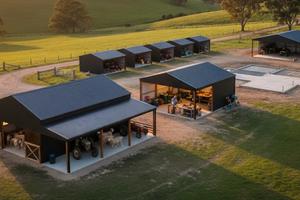Sibling Bonding - Shared Hobbies for Foster Children - Build Sibling Bonds, Process Emotions, And Develop Trust

Key Takeaways
Essential insights to remember
Foster sibling bonding through carefully selected shared activities creates emotional stability and helps children process trauma in a supportive environment.
Creative hobbies for foster children like art, music, and drama provide essential outlets for self-expression while building communication skills between siblings.
Physical activities for foster siblings encourage teamwork, healthy energy release, and confidence-building while fostering meaningful connections.
Foster care activities should be introduced gradually with patience, focusing on the bonding process rather than outcomes to ensure positive experiences.
Supporting foster children's relationships through consistent, engaging hobbies helps develop trust, improves wellbeing, and creates lasting sibling connections.
When foster children come into a new home, they are dealing with immense change and uncertainty. Often these children have faced trauma, abuse, or neglect in their young lives. As foster carers, it is our role to provide stability, security and loving support.
An important part of this process is encouraging positive bonds between foster siblings. Shared hobbies and activities can help foster children connect, communicate and trust one another.
The Benefits of Shared Interests
Participating in hobbies or interests together gives foster siblings valuable time to interact in a relaxed, engaging setting. Away from the intensity of the foster home environment, bonds can naturally develop. Shared interests also give children something positive to discuss and a chance to discover common ground.
This can promote greater empathy and understanding between them. In addition, joint activities provide an outlet from daily stresses and worries. The enjoyment and sense of teamwork can boost moods, motivation and self-confidence.
Choosing Appropriate Hobbies
As foster carers, we must carefully consider appropriate shared pastimes for the children in our care. This depends on factors like their ages, abilities, interests and backgrounds. For example, creative hobbies like music, art, drama or writing allow self-expression.
These help children process emotions in a healthy way. Meanwhile, physical activities like sports and games encourage team building, discipline and releasing energy. When deciding on suitable hobbies, we need to involve the foster children in the decision-making process wherever possible. This promotes autonomy and feelings of security.
Getting Started with Shared Activities
Patience is necessary when introducing any new hobby or endeavour. Foster children may be hesitant about participating jointly at first. It is important that we encourage engagement while avoiding any pressure or demands on the children. Praising cooperation and efforts rather than outcomes can be helpful.
Beginning with simple, straightforward activities often works best. Arts and crafts, board games, gardening, cooking, music or outdoor games are great starting points. Focused activities help unite foster children through creativity and conversation. However, we should remain flexible and adaptable if foster children lose interest or struggle with any activities.
Making Bonding Successful
Our primary aim should be for shared hobbies to open positive lines of communication when fostering siblings. The activities themselves are just a tool for connection. If engagement declines or conflict occurs, refrain from criticising or disciplining.
Instead, offer encouragement, reassurance and guidance. Be prepared to modify or change course completely if needed. Patience and perseverance are key. Bonding will happen gradually as trust develops over consistent, caring interactions around hobbies. Soon, foster siblings can discover the joy of mutual interests bringing them together.
Shared interests provide meaningful opportunities for foster children to interact and relate to one another. Hobbies can unite siblings, improving communication, understanding and enjoyment of each other’s company. However, foster carers must invest time, care and attention in this bonding process.
Getting the right blend of activities to suit all children takes thought and effort. Ensuring engagement stays positive and constructive is also essential. The ultimate rewards will be seen in closer sibling bonds, greater trust and improved well-being all round. Through the self-expression, laughter and friendship joint hobbies can nurture, we enrich our foster children’s lives now and for the future.





